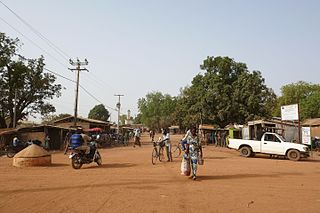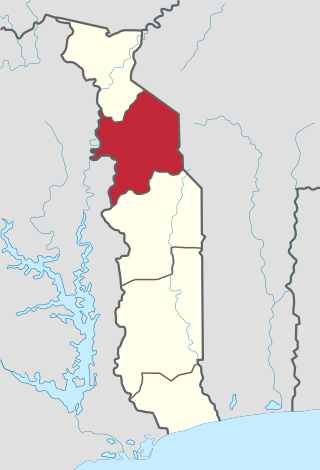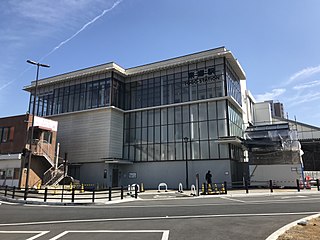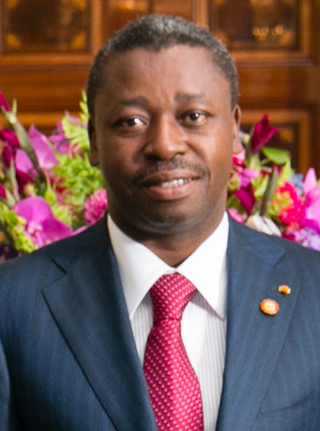
Kozah is a prefecture located in the Kara Region of Togo.
The cantons (or subdivisions) of Kozah include Lama, Lassa, Soumdina, Landa, Kouméa, Tcharé, Pya, Tchitchao, Sarakawa, Yadé, Bohou, Landa-Kpinzindè, Djamdè, Atchangbadè, and Awandjélo. [1]

Kozah is a prefecture located in the Kara Region of Togo.
The cantons (or subdivisions) of Kozah include Lama, Lassa, Soumdina, Landa, Kouméa, Tcharé, Pya, Tchitchao, Sarakawa, Yadé, Bohou, Landa-Kpinzindè, Djamdè, Atchangbadè, and Awandjélo. [1]

The geography of France consists of a terrain that is mostly flat plains or gently rolling hills in the north and west and mountainous in the south and the east. Metropolitan France has a total size of 551,695 km2 (213,011 sq mi). It is the third largest country in Europe by area and the largest in Western Europe.

Castletownshend is a village about 8 km (5 mi) south-east of Skibbereen, in County Cork, Ireland. The village developed around a small 17th-century castle built by Richard Townsend, whose descendants still reside there.

Boukoumbé or Boukombé is a town, arrondissement and commune in north western Benin on the border with Togo. It is known for its market, its whipping ceremony and for its tradition of pipe making. Mount Kousso-Kovangou, the highest point in Benin, lies nearby.

Kara Region is one of Togo's five regions. Kara is the regional capital.

French Togoland was a French colonial League of Nations mandate from 1916 to 1946, and a UN trust territory from 1946 to 1960 in French West Africa. In 1960 it became the independent Togolese Republic, and the present day nation of Togo.

The Republic of Togo is divided into five regions which are subdivided into 35 prefectures. These various prefectures of Togo are shown according to their respective regions below.
Kozah could refer to:

Vo is a prefecture located in the Maritime Region of Togo. The prefecture seat is located in Vogan. Amegnran is a village in the prefecture.

KMXA-FM is an adult contemporary radio station in Minot, North Dakota, owned by iHeartMedia, Inc. During the Christmas season "Mix 99.9" plays continuous Christmas music. The station begins playing the Christmas music the day after Thanksgiving and runs until Christmas Day.

Pinchote is a town and municipality in the Santander Department in northeastern Colombia.

Villardiegua de la Ribera is a municipality located in the province of Zamora, Castile and León, Spain. According to the 2004 census (INE), the municipality has a population of 162 inhabitants.
Maurice Dahuku Péré was a Togolese politician who was President of the National Assembly of Togo from 1994 to 1999. He was the national president of the Democratic Alliance for the Fatherland, an opposition party.
The Lambas are an ethnic and linguistic group of people living in the Kéran and Doufelgou Districts (Préfecture) of the Kara Region in Northern Togo and in the Atakora and Donga Departments of Bénin, West Africa. The capital of the Kéran District is Kanté and the capital of the Doufelgou District is Niamtougou.

Tōgō Station is a train station on the Kagoshima Main Line, operated by JR Kyushu located in Munakata, Fukuoka Prefecture, Japan.
Kpatcha Gnassingbé is a Togolese politician. He is a son of Gnassingbé Eyadéma, who was President of Togo from 1967 to 2005, and a brother of Faure Gnassingbé, who has been President since 2005. From 2005 to 2007, Kpatcha Gnassingbé was Minister of Defense. In April 2009, he was arrested on suspicion on plotting to overthrow his brother.

Oued Fodda District is a district of Chlef Province, Algeria.
Lähtse is a village in Vinni Parish, Lääne-Viru County, in northeastern Estonia.

Kiisamaa is a village in Lääneranna Parish, Pärnu County in southwestern Estonia.

Liso Polje is a village in the municipality of Ub, Serbia. According to the 2011 census, the village has a population of 225 people.

Presidential elections were held in Togo on 25 April 2015. Initially scheduled for 15 April 2015, the election was postponed by ten days at the recommendation of John Dramani Mahama, President of Ghana and acting chair of the ECOWAS organization. Incumbent President Faure Gnassingbé was seeking a third term and was opposed by four other candidates, including the main opposition leader Jean-Pierre Fabre of the National Alliance for Change. Provisional results by the National Independent Election Commission declared Gnassingbé the winner with about 59% of the vote, whilst Fabre received 35%. Fabre called the results a "crime against national sovereignty", saying he considered himself the new president.